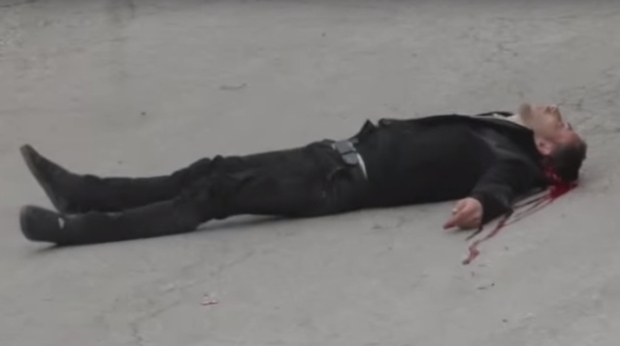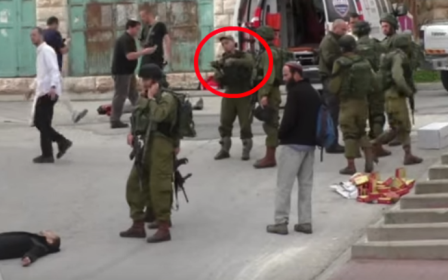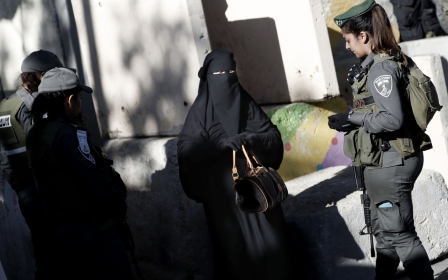Israeli soldier who 'executed' Palestinian said he 'needed to die'

An Israeli soldier filmed as he shot an injured Palestinian attacker in the head told his commander that the “terrorist was alive, and needs to die”, an Israeli court heard on Thursday.
The evidence came from the soldier’s commander, Major Tom Neeman, who said that he confronted Sergeant Elor Azaria moments after he shot and killed Abed al-Fattah Yusri al-Sharif, an alleged attacker in Hebron in March.
“I was angry at him [Azaria] for doing this,” Neeman said. “Essentially a shooting had been conducted at the scene that I was in charge of, without my permission."
Azaria, an army medic, is charged with manslaughter. Evidence presented by a pathologist at the trial said that Sharif could have survived his initial injuries.
“The other bruises and damage were not lethal, not immediately,” Dr Hadas Gips told the court. “Had he received medical care immediately he would almost certainly have survived. Even without it – the deceased might have survived.”
The trial, which resumed on Wednesday, has been in the media spotlight in recent weeks after allegations emerged that Sharif’s alleged accomplice, Ramzi Aziz al-Qasrawi, was also “executed”.
According to Palestinian residents interviewed by Israeli human-rights group BTselem, Qasrawi was also injured by an initial shot but then shot in the neck and head by a different soldier.
Azaria’s lawyers have asked the military advocate general to investigate the claims by BTselem. The Israeli army on Tuesday denied the allegations.
A soldier was lightly wounded in the attack that took place on 24 March. Qasrawi has been presented as the main attacker and Sharif as his accomplice, although video evidence has since thrown doubt on claims that he was armed.
Azaria’s defence team have said the footage was doctored and that he believed Sharif was wearing an explosive belt.
The military prosecutor, Lieutenant Colonel Nadav Weisman, said a threat assessment had found that the risk in this case was “mainly of shooting and stabbing”.
"An explosive belt is not something we discuss. It belongs to another era," he said.
Further questions have also been raised about the attack, with footage apparently showing a knife being kicked to Sharif’s side, appearing late last month.
The case has deeply divided Israeli society. Former Defence Minister Moshe Yaalon and Israeli army’s Chief of Staff Gadi Eisenkot both spoke out against the shooting.
However, Prime Minister Benjamin Netanyahu and Education Minister Naftali Bennett have expressed at least tacit support, with right-wing groups also staging rallies in support of the young army medic.
New Defence Minister Avigdor Liberman initially strongly supported Azaria but since joining the government earlier this month has softened his position and said that he will not directly interfere in the case.
Reports have also now emerged that Netanyahu was considered hosting the soldier’s parents to his official residence in Jerusalem at the height of the controversy, but was then talked down by Yaalon and the Israeli army which both stressed that the killing was a professional error which broke military values and protocols.
New MEE newsletter: Jerusalem Dispatch
Sign up to get the latest insights and analysis on Israel-Palestine, alongside Turkey Unpacked and other MEE newsletters
Middle East Eye delivers independent and unrivalled coverage and analysis of the Middle East, North Africa and beyond. To learn more about republishing this content and the associated fees, please fill out this form. More about MEE can be found here.




